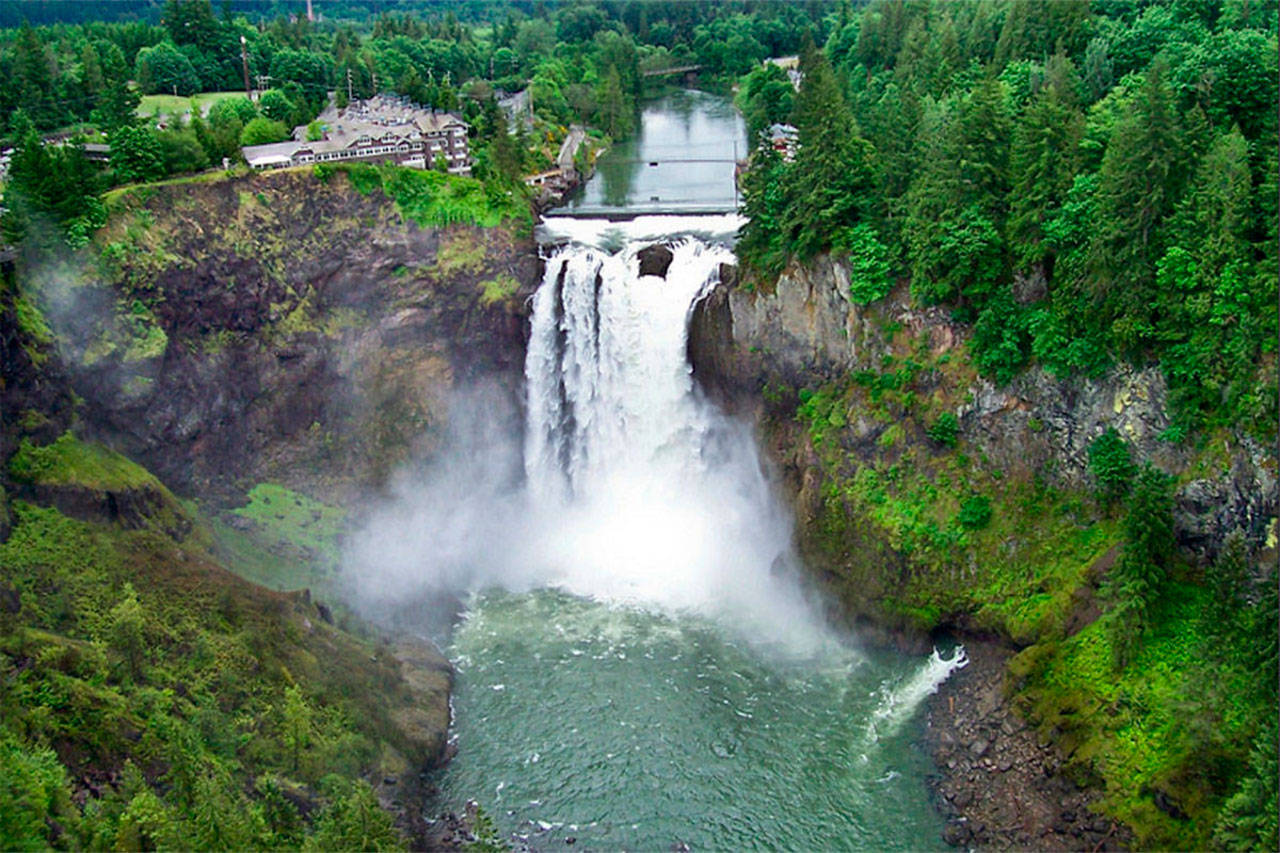Puget Sound Energy recently announced its plans to reduce its carbon emissions in half by 2040, which an environmental group is criticizing.
The Bellevue-based utility company, which serves energy to more than 1.5 million homes and businesses in the Puget Sound area, said it will accomplish this through a variety of different initiatives.
The plan comes at a time when Washington state has agreed, under the Paris Climate Accords and through Gov. Jay Inslee’s goals, to reduce greenhouse gases by 80 to 95 percent across every sector of the state’s economy, including transportation, industrial processes and energy grids, by 2050.
With the retirement of half the Colstrip Power Plant units in Montana by 2022 and the shutdown of the Centralia Power Plant in 2025, PSE estimates it will be “nearly 90 percent clean,” or non-coal generated, and on the path to 100 percent “clean” by the early 2030s.
They have also made investments in new products and renewable resource development, new programs like “Green Direct” that allows large-scale energy customers to subscribe to their renewable energy projects, and have focused on cleaner transportation.
The company said it is committed to accelerating the growth and adoption of electric vehicles, as 43 percent of carbon emissions in Washington state come from transportation. PSE will also invest in cleaner fuels.
“We can create a better energy future, which is why we are committing to reducing our carbon footprint by 50 percent by 2040,” said PSE President and CEO Kimberly Harris in a news release. “PSE is prepared to pave the way while also empowering our customers with simple and concrete actions they can take in their daily lives to lower their footprint. By working together, we can preserve and protect our environment for generations to come.”
Since building its first hydroelectric plant at Snoqualmie Falls in 1898, the utility company has been a leader in renewable resource development, according to PSE officials. PSE is currently the third largest utility owner of wind power in the nation and has one of the country’s largest energy efficiency programs. These programs have helped customers conserve nearly 5 billion kilowatt-hours of electricity.
However, the Sierra Club, an environmental group with a Seattle chapter, doesn’t buy it.
“This is more smoke and mirrors than an actual commitment to get off dirty fossil fuels, reduce climate pollution and meet our state’s climate goals,” said Doug Howell, a senior campaign representative for the Sierra Club’s Beyond Coal campaign. “Puget Sound Energy is likely to exceed this commitment under the status quo, as previous commitments to retire some of its dirty coal plants go ahead in the coming years.”
Howell said the company’s commitment to reduce carbon emissions still gives them enough breathing space to build new fracked gas plants and still doesn’t commit them to ending their use of the “dirtiest coal plant in the American West.”
That plant Howell is referring to is the other units of the Colstrip Power Plant in Montana, as units 3 and 4 do not have a retirement date, despite repeated attempts from the Sierra Club to get PSE to commit to one.
“It’s still impossible to meet our state’s responsibilities under the Paris Climate Accords under this plan,” Howell said. “We need better than this greenwashing from our state’s largest utility.”
But PSE officials said the company can’t do it on its own; policy changes at the state level are required to ensure carbon-reduction goals can be met.
These include improving the regulatory climate so utilities can make carbon-reduction investments, applying a price to carbon that balances environmental goals with costs and benefits to customers, taking action to dramatically increase the number of electric vehicles, and local and state government support by participating in low carbon programs and a transition of public fleets, such as buses, to alternative fuels.
“PSE is ready to collaborate with our customers, lawmakers, regulators and communities to ensure the lights and heat are on while we collectively take strides to reduce our carbon footprint,” Harris said in a news release.
Yet, the Sierra Club questions if that is true, since PSE was one of multiple agencies that successfully sued to stop the state’s 2016 Clean Air Rule on Tuesday. The rule had given the Department of Ecology authority to enforce emission reductions on gasoline and natural gas distributors as well as businesses.
“An overwhelming majority of Washington families want to see our state do something to fight the worst effects of climate disruption,” said Robin Everett, of Sierra Club’s Beyond Coal Campaign in Seattle. “So it’s disappointing to see our state’s largest utilities, including Puget Sound Energy and Avista Energy, sue to stop the most substantive effort the state has made to reduce climate pollution rather than being part of the solution. If we are going to meet our state’s climate obligations, we need our utilities to be leading the transition away from dirty fossil fuels to clean energy, not dragging their feet.”
But Grant Ringel, the PSE director of communications, said PSE voiced opposition to Washington state’s overturned Clean Air Rule because it would have the unintended consequence of increasing PSE’s carbon emissions, which is opposite of their goal to reduce emissions in half by 2040.
“This would be due to restrictions placed on using clean natural gas-fired electric generation in Washington, resulting in increased reliance on coal plants located in other states,” he said.


